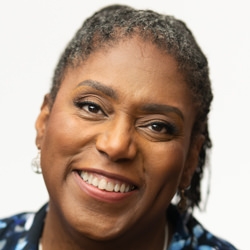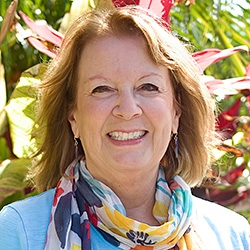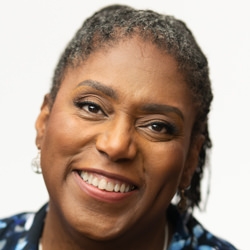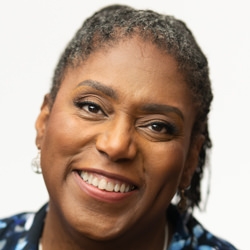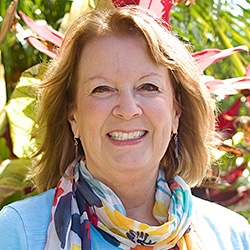
Search Results: purpose
-
Roxy Manning discusses the distinction between group purpose and group agreements. Group purpose is identified as the reason for gathering, such as learning to facilitate groups with a focus on inclusion and contribution. Group agreements are the policies or intentions to support the purpose, like creating space for all voices or forming affinity groups to address identity-specific challenges. The emphasis is on how agreements facilitate the manifestation of the group's purpose.
-
In most business environments, purpose holds a higher priority than connection. Listen to Miki discuss the strategy of using minimum connection to remain true to the purpose at hand, and how the purpose of empathy may differ in the workplace.
-
Here are some questions to support you in exploring your connection to life, your life purpose. Here we briefly touch upon what blocks you, your gratitude, strengths, passions, and what you are committed to.
-
Mary illustrates how we can get diverted from our group's purpose by the needs of a single indvidual in the group, especially requests for prolonged empathy. Listen to Mary reframe these scenarios and offer three helpful tips for handling these situations.
-
-
-
Gratitude keeps us connected to what is working, rather than dwelling on what is not working. As a celebration – gratitude keeps us connected to the natural joy of giving. Receiving gratitude also serves the function of feedback, and lets us know that we are effectively contributing.
-
Roxy Manning discusses the connection between the challenges parents face with their children and the qualities they want them to develop. She highlights the importance of aligning actions with desired outcomes, using the example that if parents value independence, they should encourage choice rather than demanding compliance. She encourages parents to consider the long-term impact of their parenting choices on shaping their children's future behavior.
-
Listen as Miki works with participants. Topics: how small requests serve interdependence; NVC process vs purpose; how to respond when empathy is used to create distance; coping with verbal aggression, and more!
-
Roxy Manning shares that facilitating equitable group dynamics involves tracking attention, needs, purpose alignment, resources, and impact. Identifying patterns in attention distribution, centered needs, and maintaining alignment with the purpose enhances inclusivity. Tracking internal and external resources, especially considering identity-related differences, prevents disparities. Recognizing who bears the impact, providing support, and addressing impactful issues contribute to fostering an equitable facilitation environment.
-
Nonviolent Communication at its core is about the quality of connection that will lead to everybody's needs being met. In this months 'Purpose of NVC' episode, we ask ourselves five questions that help us gain an awareness of where Nonviolent Communication is being used.
-
Goals and purposes can arise from intentions, but are different. Intentions arise from what's authentic, alive and aligned for you. Intentions can give you a sense of expansion, ease, and flow -- and are an essential part of any change process. Clear intentions can support decisions, management of resources, plus it can direct your attention effectively and with integrity. Read on for practices to find and implement your intention.
-
CNVC Certified Trainer Alan Seid guides you to create a relationship with money that is clear, empowered and non-stressful. In which money plays a purposeful role in helping you create your ideal life, rather than unconsciously undermining your ability to achieve your dreams.
-
What does nonviolence have to do with group facilitation?
Miki Kashtan believes that nonviolence is a way of being and living that orients us in all our thoughts, words and deeds toward the integration of truth, love and courage. All nonviolent individual and collective actions are aimed at preserving what serves life and challenging what does not. Facilitation is one clear path for bringing nonviolence to the world!
How can we act now, as facilitators, as if the world of our dreams, the Beloved Community, is already in place?
-
Enjoy listening to Miki make the distinction between leadership as a position and leadership as an orientation to life. The theme: when is it time to actively step into your vision?! Check it out.
-
During this very moving session, you'll dive into Robert's exercises for supporting connection to your true self as opposed to your conditioned self.
-
We invite you to dive into this voyage, where you and Robert will swim ever deeper into the Spiral of Life, coming face-to-face with your divine Life Force – that essential living energy that permeates all.
-
Your needs and your values are your Life Force: the river that flows through your spirit and your life, giving life and light to your being. Explore this river with Robert, and map out routes that support your growth. Gain a deeper understadning and acceptance of the spirituality and beauty of needs and values.
-
- Explore what makes the capacity lens radical and practical
- Understand the complexities of how capacity and willingness interface
- Mourn capacity limits within and around us without jumping to conclusions
- Orient to agreements as behavioral anchoring in support of your commitments
-
Trainer Tip: Today, when you tell yourself that you "have to" or "should" do something, notice what you feel and experience - is it a sense of duty, obligation, guilt, shame, overwhelm, constriction, heaviness? Then consider the underlying needs you are trying to meet with the activity. This can shift the purpose and intention with an energy that motivates our actions can bring empowerment and joy to our lives.

